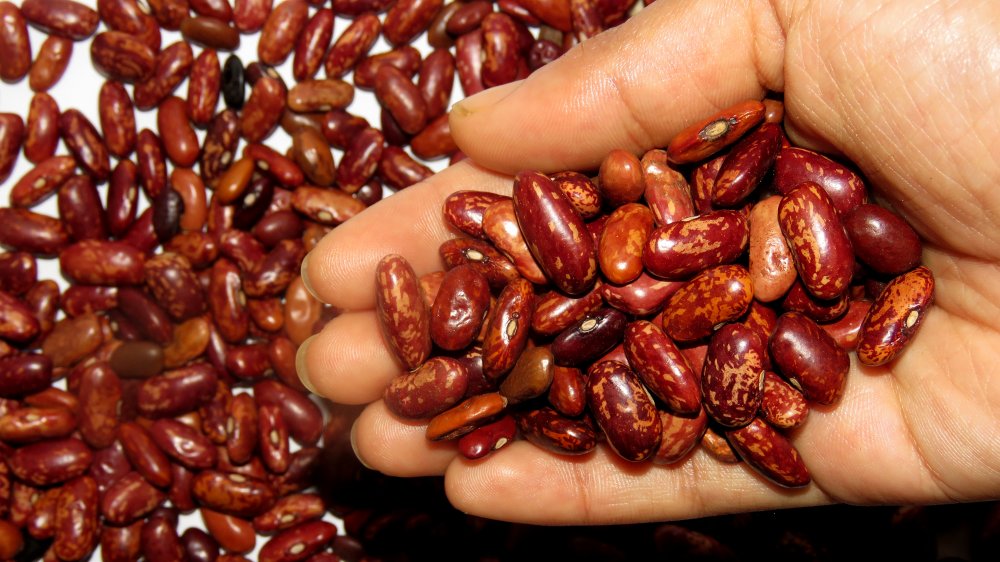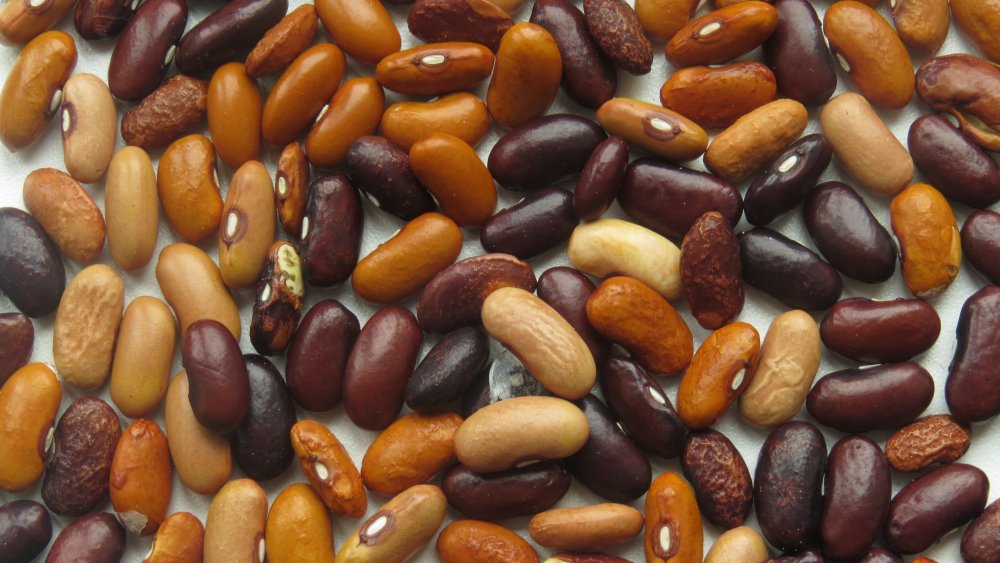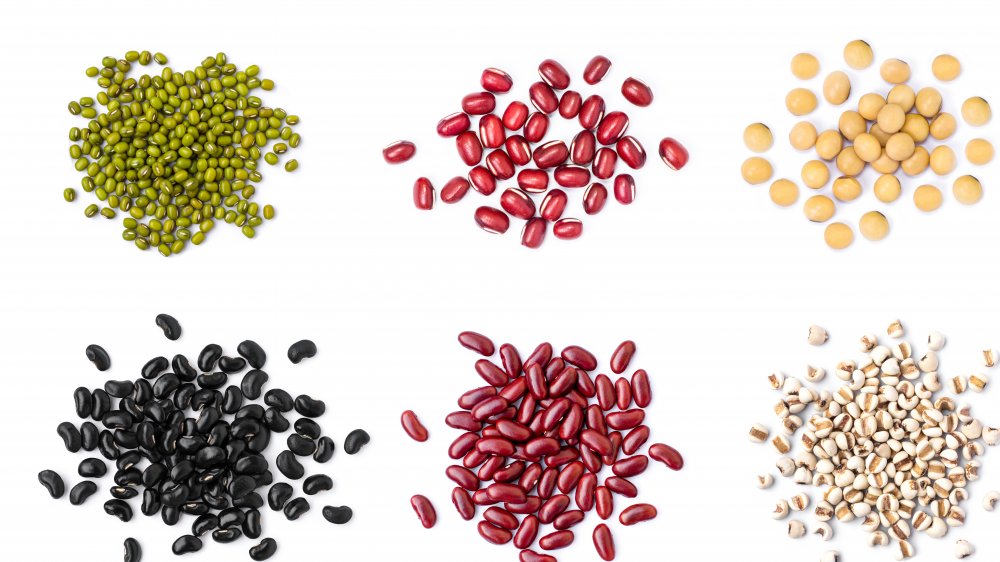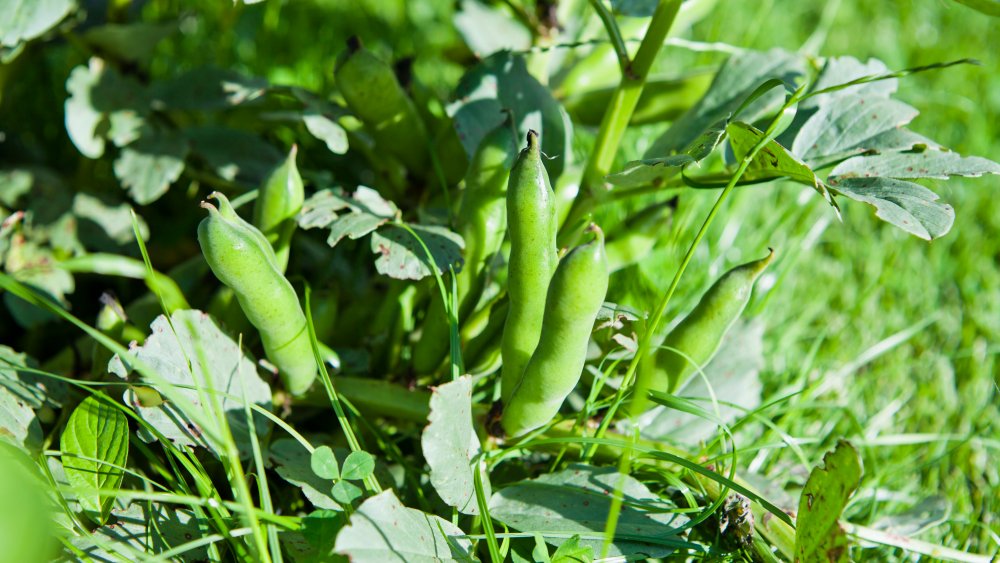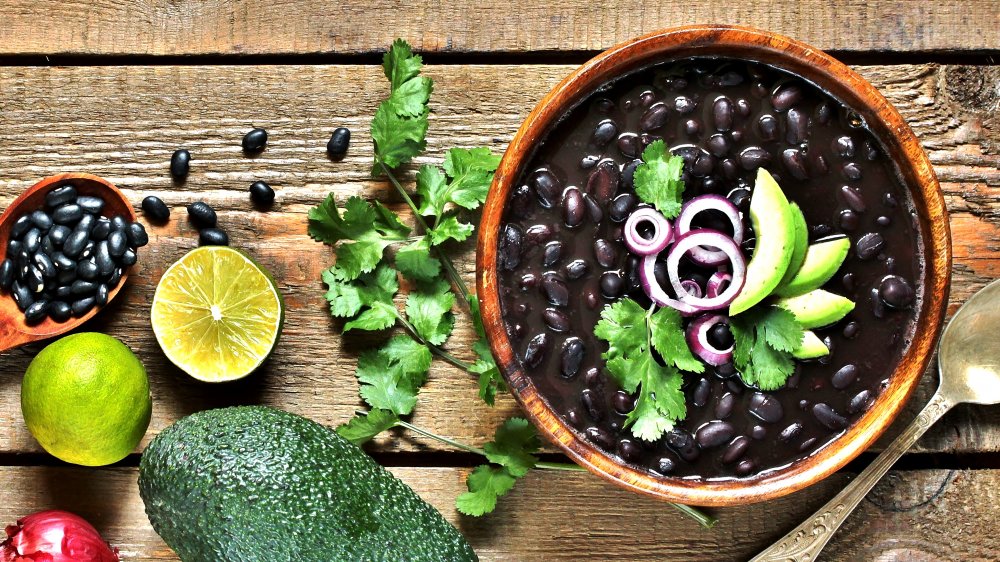Here's What Happens When You Eat Beans Every Day
Beans are an incredibly versatile food that span a wide range of varieties and potential uses. Unlike some foods that would be potentially difficult to consume on a daily basis, beans could easily be eaten every day, and perhaps even without the eater getting bored with them. They're also incredibly cheap and easy to store.
Bean plants are legumes, and belong to the same family as lentils and peanuts (via Healthline). Technically, beans themselves are the seeds from the plant, enclosed in a pod. The most commonly eaten species in the United States are kidney, black, navy, garbanzo, fava, and pinto beans. Beans are packed with nutrition and will do your body well if consumed on a daily basis. There is just one troublesome side effect, but you can probably already guess what it might be.
There's a decent chance some flatulence will occur
Half of the schoolyard rhyme about beans is true. While beans aren't a fruit, they do make you, well, you know. The culprit here is raffinose, a fiber found in beans which some people have trouble digesting. Nevertheless, there are a few steps that can be taken to reduce the impact of this troublesome fiber. A study found that soaking the beans in water before cooking them can help to decrease the raffinose content, without affecting the nutritional value of the beans (via The National Library of Medicine).
Another way to prevent the effects of raffinose is by the use of Beano, the aptly-named anti-gas pill which contains an enzyme that helps to break down the difficult to digest components of beans (via Beano Gas). However, a study from 2011 suggested that the widespread perception that beans cause flatulence may actually be overblown. Only about half of those who participated in the study found that eating beans resulted in gas (via The National Library of Medicine).
You'll hit fiber intake recommendations
Beans are full of fiber and they're one of the easiest ways to get your daily recommended intake, which most Americans don't (via Web MD). Although federal guidelines suggest between 25 to 30 grams of fiber intake daily, the average American consumes only half of that (via UCSF Health). Fiber is important to consume because it plays a big role in our digestive health (via Everyday Health). By eating just a cup of beans, which contains around 15 grams of fiber, you can get about half of your daily recommended intake.
You can use beans to bulk up your muscles
Beans are a good source of low-fat protein. Protein is important for muscle growth and development as well as for making enzymes and hormones (via Web MD). A cup's worth of beans contains some 15 grams. Depending on the type of bean, this is between 29 and 36 percent of the daily recommended value (via My Food Data).
Some vegetarians and vegans have a difficult time getting enough protein in their diets, but a serving of beans will do the trick. Meanwhile, an amino acid in the protein family called lysine is particularly difficult for vegetarians to consume enough of, but beans are one of the best non-meat sources. Lysine deficiency can lead to hair loss, anemia, and reproductive problems, but a cup of kidney beans contains almost 1400 milligrams of lysine, which is 66 percent of the daily recommended intake (via My Food Data).
You might shed a few pounds
Beans are quite low in calories given the nutritional punch that they pack. A cup of navy beans has 245 calories, and given that beans are full of nutrients such as vitamins B, E, and K, and minerals like iron and folate, they're hardly empty calories (via Healthline). Protein and fiber, of which beans have loads, are also two ingredients that are important if you're looking to trim some poundage.
Because foods that are high in fiber such as beans can be quite filling, eating beans every day can cause you to be less hungry. In fact, a study found that people who ate a diet high in fiber were less hungry, and as a result, lost an average of 3 pounds over the course of a month (via The National Library of Medicine).
All evidence considered, it seems there is no time like the present to up the amount of beans in your diet.
